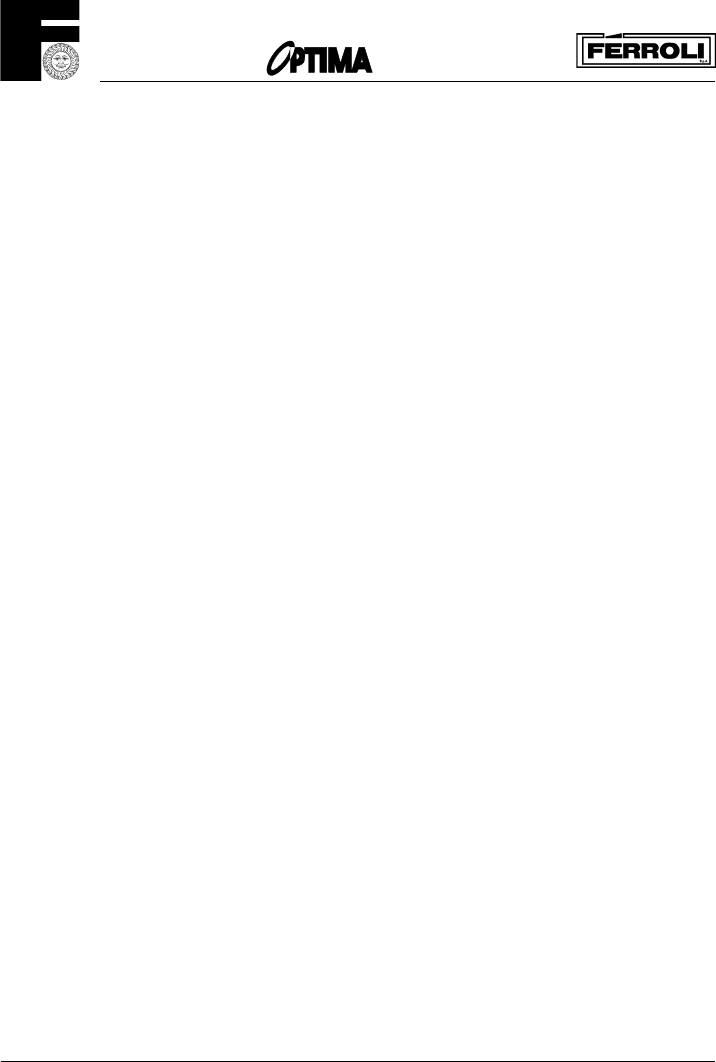
1001
24
8.7 D.H.W. Burner Pressure
The domestic hot water burner pressure is not range rateable and not adjustable but the maximum and
minimum burner pressure should be checked as follows:
a. Check electricity supply is still off.
b. Open a D.H.W. tap at high flow until the water runs cool and leave running.
c. Switch on the electricity supply.
d. The pressure should be 14 mbar -/+ 0.5 mbar.
e. Disconnect one of the wires from the «Modureg» (fig. 22), this will reduce the burner to minimum
which should read 3.0 mbar +/- 0.5 mbar. If the burner pressure is not as stated check the
inlet working pressure (fig. 22) which should be minimum 20 mbar. If that is correct, consult Ferroli.
No attempt should be made to alter D.H.W. burner pressure.
f. Switch off electrical supply and close hot tap.
g. Reconnect the wire to the «Modureg». Remove pressure gauge, tighten the test screws.
h. Replace control panel (2 screws).
i. Turn on electricity supply, open a hot tap to full flow and when the burner lights, test for gas soundness
with a leak detection fluid around the gas valve and connections including the pressure test point
screws.
9.0 SYSTEM OPERATION
Let the boiler operate normally on central heating for about 30 minutes.
I) Vent radiators.
II) Vent heat exchanger.
III) Examine all pipework for leakage.
IV) Turn on a D.H.W. tap and check that the C.H. pump stops running.
V) As the D.H.W. temperature reaches 60°C check the burner for modulation.
Switch off electricity.
Drain down the central heating system fully, when hot.
Refill the system as previously instructed. Repeat the venting.
Examine the system's water pressure and top up as necessary.
Replace the casing front panel and close the control panel cover.
10.0 HANDING OVER TO THE USER
After completion of installation and commissioning of the system:
a. Hand over the User's Instructions' to the Householder and explain His/Her responsability under the Gas
safety (Installation and Use) Regulations 1994.
b. Explain and demonstrate the lighting and shutting down procedure.
c. Explain the operation of the boiler including the use and adjustment of ALL system controls.
Advise the User of the precautions necessary to prevent damage to the system and to the building,
in the event of the system remaining inoperative during frost conditions.
d. Stress the importance of regular servicing by a qualified Heating Engineer and that a comprehensive
service should be carried out at LEAST ONCE A YEAR.


















